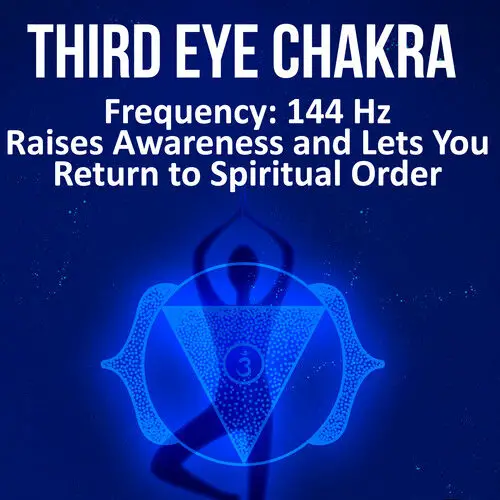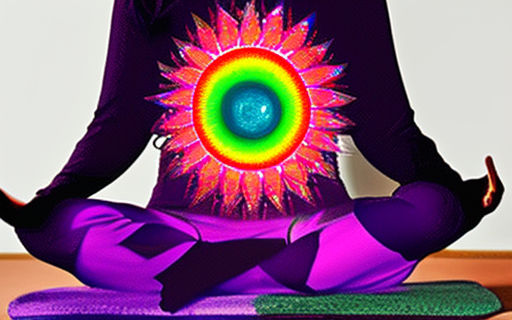Overactive Root Chakra
Overactive root chakra can affect one’s health in several ways. It can result in an excessive emphasis on physical vitality and a devitalisation of the other centres of the body. This can lead to emotional, mental and spiritual maturity being impaired. It can also lead to anger and materialism. In addition, an overactive root chakra can cause a person to experience a variety of physical and mental symptoms.

Underactive root chakra
A person who suffers from an underactive Root Chakra can be prone to self-doubt, lack of emotional connection, and a messy environment. This type of imbalance can also lead to difficulties concentrating, setting boundaries, and self-discipline. There are a few ways to heal an underactive root chakra.
The most common cause of an underactive root chakra is childhood trauma. This type of trauma sets up energy patterns of destabilisation and dissociation. These patterns continue into adulthood, affecting the root chakra. Those who were exposed to long-term trauma often have the weakest root chakras. They often don’t exercise, eat poorly, and wash less than they should.
To treat an underactive root chakra, you can use essential oils to open it. For instance, the essential oil Cassia can open the root chakra. Patchouli is good for clearing negativity. In addition, red Hematite gemstones can help balance the root chakra. They also act as powerful grounding stones and can help people overcome fear and build self-esteem.
Taking time to connect with nature is another way to open up your root chakra. Many people refer to this practice as “earthing,” and this involves connecting to the earth element. Walking in the dirt, sitting in the grass, and soaking up the sun’s rays are all good ways to connect with the earth element and open your root chakra.
Overactive root chakras can lead to many health issues. An overactive Root Chakra can cause problems with digestion and immune system function. It can also lead to aggressive behaviors and workaholism. An overactive root chakra can also lead to a sense of loneliness and disinterest in intimacy. You may also feel suspicious of people and situations.
A balanced root chakra is associated with personal finance, emotional stability, and emotional stability. An underactive root chakra may manifest as feelings of frustration, lethargy, or feeling like you are unable to get anything done. You may also find yourself spending too much time daydreaming. Thankfully, this kind of underactivity can be remedied with regular meditation and acts of kindness.
The roots of your body are the foundation of your life, so they are often affected by feelings of security and safety. Working on the root chakra can help you find a way to rebalance this chakra and restore its natural balance. In addition to practicing the above tips, you should try to make your life as positive and stable as possible.
Overactive muladhara chakra
Overactive root chakra and muladhar chakra can affect one’s overall wellbeing. It can make one feel complacent or unmotivated. In addition, an overactive root chakra is a sign of emotional instability and lack of emotional and mental maturity. The symptoms can range from inability to concentrate to frequent daydreaming.
Overactive root chakra and muladhar chakra are related and should be addressed. A person with an overactive root chakra is prone to being possessive, irritable, and defensive. Typically, they’ve experienced some form of abandonment or loss of control in their life. Using root chakra balancing crystals will help bring their energy levels back into balance. Certain gemstones are ideal for this.
Meditation is another way to heal an overactive root chakra. Focused seated asanas combined with mantra chants and mudras are effective methods to balance the root chakra. These practices will help restore the body’s natural energy flow and allow you to enter a state of deep relaxation.
The Muladhara chakra controls the reproductive organs, immune system, and large intestine. If this energy center is not functioning properly, it can lead to health problems such as arthritis, obesity, and varicose veins. It can also lead to lower back pain and a poor bone structure. Overactive Muladhara chakras also tend to cause aggressive behavior and greedy attitudes.
The root chakra is the most instinctual chakra in the body. This is where we receive our primary emotional and physical needs, as well as the instinct to protect ourselves. This energy center also triggers our fight or flight responses, which is very much in line with our animal nature.
Symptoms of an overactive root chakra include aggression, irritability, and anger. These symptoms indicate that there is too much energy flowing into the chakra and that it is spinning too fast. An overactive root chakra can lead to physical issues such as poor health, eating disorders, and low self-esteem.
A healthy root chakra helps people feel secure and confident in their environment. It can also help people deal with a negative cycle and empower them to get out of their current circumstances.
Signs of an imbalanced root chakra
Signs of an imbalanced root chakra may be a mix of physical and emotional symptoms. These symptoms include a sense of anxiety and fear. They can also lead to a lack of empathy or trust in others. Many people experience these symptoms during childhood due to traumatic experiences. Physical symptoms of an imbalanced root chakra can include digestive problems, insomnia, and anxiety. Some people even experience a sense of loneliness.
There are several ways to balance the root chakra, including meditation and physical exercise. Physical exercises can involve touching the earth or stomping your feet. Meditation and visualization can also be helpful. For example, visualization can help re-center the energy in the root chakra. Some people wear gemstones that are symbolic of the root chakra.
People who have a weak root chakra can feel ungrounded, unreliable, and uninterested in being part of the world. They may also have a weakened sense of self-worth and a sense of lack. The most effective techniques for clearing an imbalanced root chakra are the most simple ones. For instance, meditation and yoga exercises can help clear blockages in the chakra. These exercises can also help people reconnect with their bodies through exercise or dance.
A properly functioning root chakra radiates energy throughout the body. A balanced root chakra is associated with passion, vitality, responsibility, and satisfaction of survival needs. It can also help people keep the balance between emotions and logic. If it isn’t functioning properly, it can lead to sexual or reproductive issues.
An imbalanced root chakra may also lead to facial and throat problems. A person with a well-balanced root chakra may have clear focus and confidence in recognizing truth. However, people with an imbalanced root chakra are prone to being moody and unwilling to learn from others. They may also be unable to see their fears objectively.
When the solar plexus chakra is blocked, it can lead to immaturity, a “me first” attitude, and problems figuring out who you are. In addition, they may have difficulty listening to other people and have difficulty understanding others.
Treatments for an imbalanced root chakra
Root chakra is a key organ and is related to our senses. An imbalanced root chakra can result in physical, emotional, and mental problems. People with low energy in this organ are more likely to experience problems with defecation, virility, and reproduction. In addition, an imbalanced root chakra can lead to problems with the sense of smell.
In childhood, our sense of security is closely tied to the development of our root chakra. If our caregivers met our basic needs, we felt secure. The root chakra may be imbalanced as a result of chaotic environments and caregivers who withheld basic needs. Traumas and abuse can also affect this chakra.
A simple way to balance the root chakra is to focus on the tip of your nose. We can use the sense of smell to help us relax and improve our general well-being. We can also practice exercises that open the root chakra. For example, standing forward fold exercises are beneficial. Begin with the feet close together and bend the knees slightly. Next, reach forward. Your hands should be placed behind your legs. Hold this position for several breaths.
If you are suffering from an imbalanced root chakra, you may be wondering what the best treatment for this chakra is. The root chakra is one of seven major energy centers in the body. These energy centers extend from the bottom of the spine to the top of the head. They function as pathways for energy throughout the body. A balanced root chakra is essential to your health and well-being, and treatments for an imbalanced root chakra can help you improve its overall condition.
One of the most common root chakra treatments involves visualization. This exercise helps you restore your sense of personal power and remove any enfeeblements from your life. The idea is to visualize a golden lotus bud on your abdomen, and pour your energy into it. You may find it helpful to use a healing crystal to help balance this chakra.
A balanced root chakra gives you emotional stability and a feeling of groundedness. An imbalanced root chakra can cause mental illness, stress, and depression. It can also cause eating disorders and low self-esteem.









